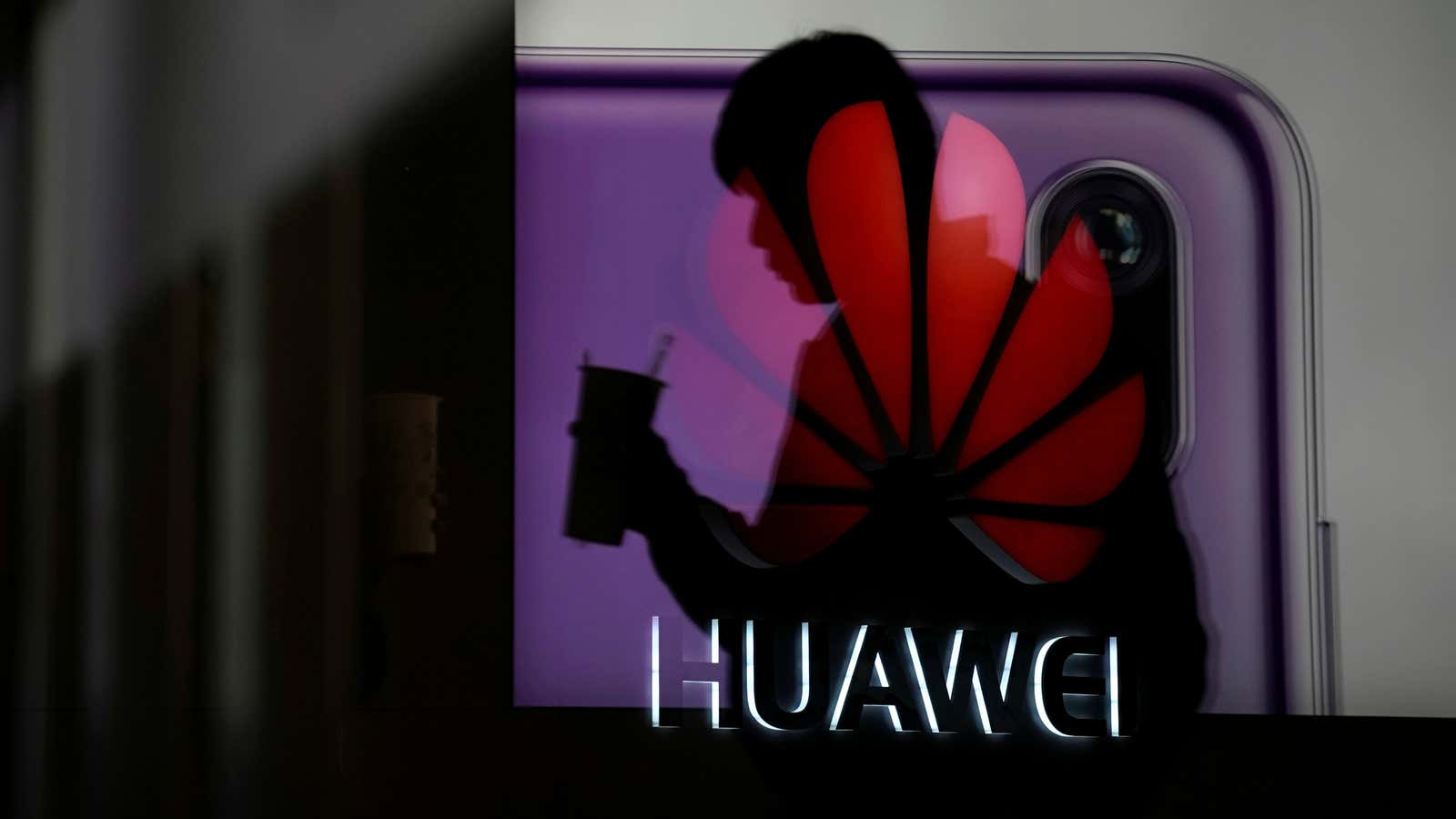Last year was probably Huawei’s worst since 2012. That year, a US House panel warned that (pdf) using the Chinese telecom giant’s technology could be a national security risk.
At the start of 2018, Huawei, the world’s biggest telecom-equipment supplier, failed to reach a deal to get a US carrier to stock its phones, and a leaked White House memo on 5G technology cited Huawei as a reason why the US should consider nationalizing its next-generation wireless network. The year ended with the arrest in Canada of Meng Wanzhou, the company’s chief financial officer and daughter of founder Ren Zhengfei, at the request of US authorities on suspicion of violating trade sanctions on Iran.
Just two weeks into 2019, Huawei has already seen its Poland sales director arrested on charges of spying for China. The company fired the employee after the arrest. In the wake of that, Poland’s internal affairs minister called for a joint European Union-NATO stance on whether to exclude Huawei from their markets. Now, according to a Wall Street Journal report (paywall), a US indictment on allegations of stealing trade secrets from firms like T-Mobile could be looming.
Huawei previously faced a 2014 civil suit from T-Mobile, to which it was then a cellphone supplier, as it allegedly tried to steal secrets relating to a phone-testing robot to improve its own. T-Mobile said in the suit (pdf, p. 5) that it had caught Huawei employees on camera trying to take parts, and that they tried to copy confidential information about the robot. A jury in 2017 found that Huawei misappropriated trade secrets and therefore violated its contract with T-Mobile which said that the two companies must protect proprietary information. Huawei was ordered to pay T-Mobile $4.8 million.
Huawei said in a statement that the past dispute with T-Mobile was resolved, and declined to comment on the possibility of a federal indictment relating to T-Mobile. It’s unclear what other firms could be involved in the US probe.
All this comes on top of the legal process against Meng, with a court due to set a date for her extradition hearing on Feb. 6 during the Lunar New Year. The US has until the end of this month to file a formal extradition request, according to the South China Morning Post.
In the wake of Meng’s arrest, Huawei appeared to be overhauling its public-relations strategy to better address the suspicions around it. In late December it invited foreign media to its headquarters where one of its rotating chairmen, Ken Hu, fielded questions over a two-hour press conference. This week, Huawei’s founder Ren, who rarely speaks to the media, met with journalists at the company’s headquarters and said that Huawei would never do anything to harm its customers, and suggested that the company was caught up in larger political forces. “We are like a small sesame seed, stuck in the middle of conflict between two great powers,” he said, according to a company transcript.
The new accessibility doesn’t appear to have allayed concerns that the company could be compelled to share information with Beijing, in spite of Ren’s assertion that Huawei would decline such requests. Meanwhile, the Chinese government’s actions in the wake of arrest show ire over Huawei’s fate.
Beijing detained multiple Canadian citizens soon after Meng’s arrest in early December. It further escalated actions against Ottawa this week, when it hastily retried a Canadian who had previously convicted on drug trafficking charges in China and sentenced him to death—a dramatic change from the 15-year prison sentence he was given in 2016. Also this week, a Canadian woman who was traveling via Beijing back to Toronto said she and her baby were removed from her flight by police at Beijing airport, and interrogated for two hours.
